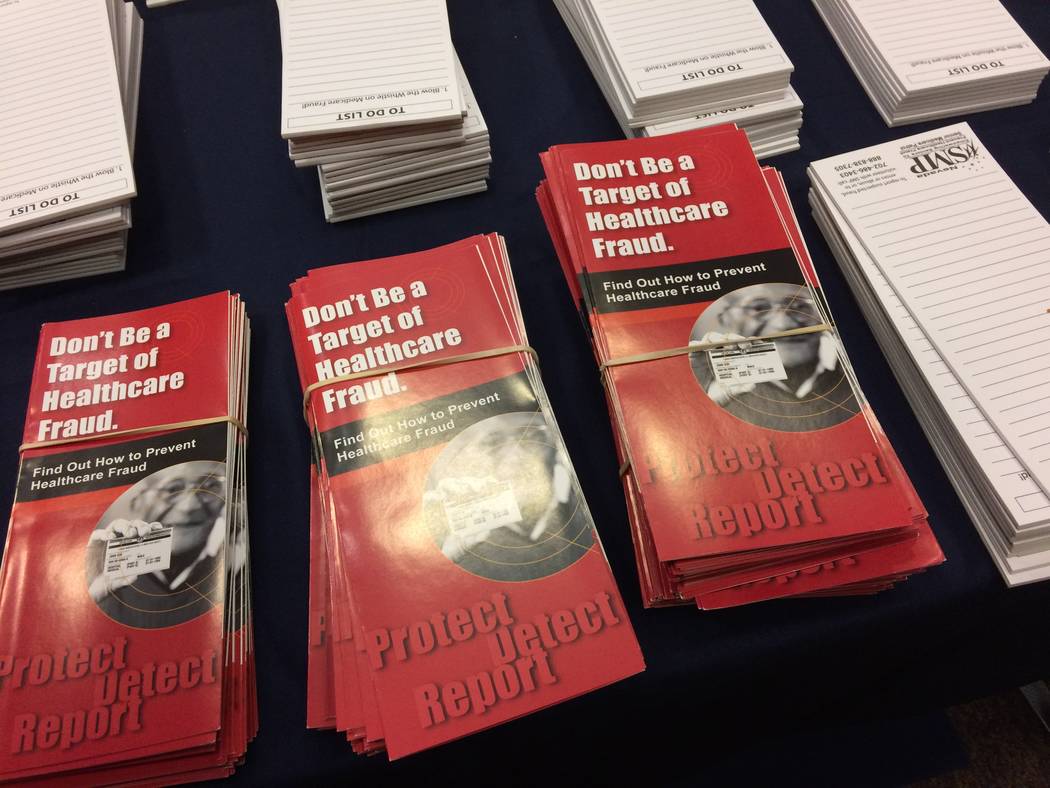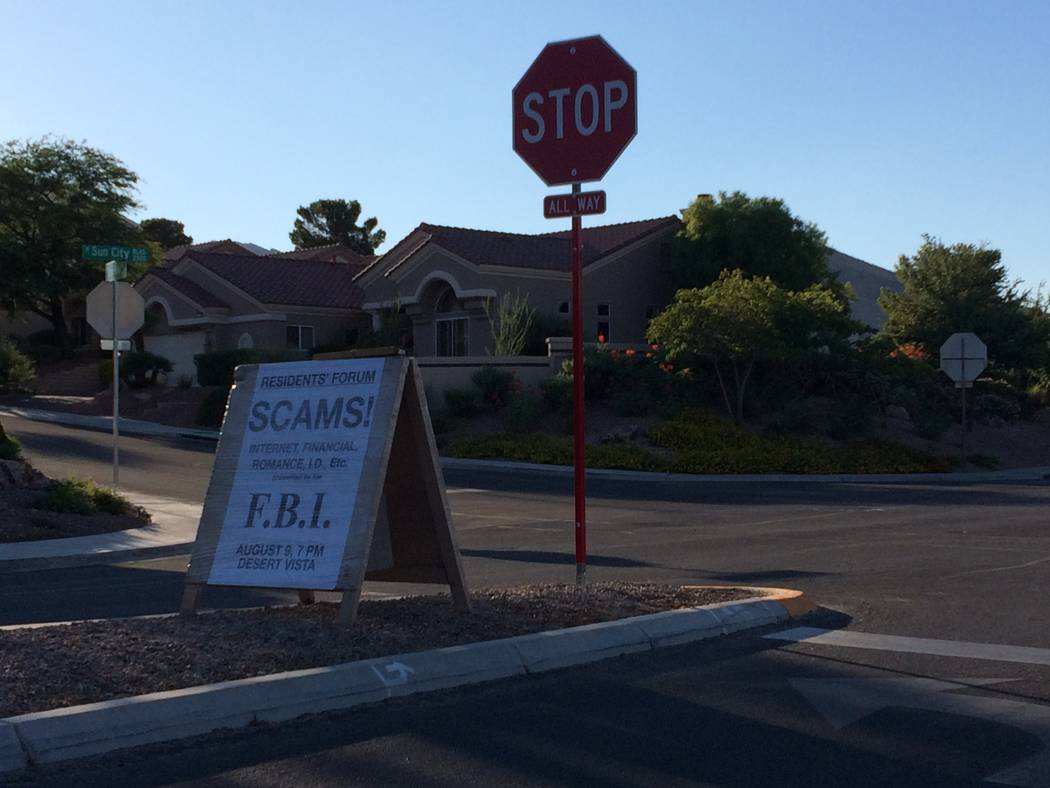Las Vegas-area seniors learn about latest scams





When it comes to being a victim of scams, cons and theft, it’s a matter of “when,” not “if,” Las Vegas Metropolitan Police Department Detective Jefferson Grace recently told seniors.
“We’re playing catch-up,” he told about 350 attendees at Desert Vista Community Center of police efforts to thwart crooks who steal credit and debit card information or trick people with scams. “There’s so much fraud and financial crimes going on, if you have all day I might be able to touch on probably half of them.”
That chip on your credit card that’s supposed to be infallible? It’s not, Grace said.
Criminals attach face plates at gas pumps that look nearly identical to real card readers, he said. Select “credit card” when prompted, which will require only your ZIP code, not your PIN.
The skimmers also are used at ATMs and convenience stores. They cost $7 online and take seconds to install, Grace said. He showed a video clip of how one was attached in just four seconds while a clerk was distracted.
With so many phony card readers out there, Grace said, everyone is a target. He suggested having a bank account for one’s debit card that holds a minimal balance, and transferring money into it as needed to “minimize the damage when it happens.”
Money scams are another way crooks try to get one’s hard-earned cash. These include internet, romance, jackpot and grandparent scams.
Special agent Todd Tumbleson said FBI statistics showed that in 2016, 55,043 victims were 60 or older, resulting in $339,474,918 in losses.
His mother got a call, supposedly from the IRS, saying she’d be arrested if she didn’t pay immediately. Luckily, she turned to him for advice.
“Older people are being targeted,” Tumbleson said. “It was hard for her to accept that there are people out there who will take your money and they don’t care at all.”
The grandparent scam is another way to extract money from older Americans. A supposed grandchild will call to say they’ve been arrested on suspicion of drunken driving and need bail money, “but don’t tell Mom or Dad.” Why the secrecy? Because if you call Mom or Dad, they will verify that their child is in his bedroom studying, safe and sound.
Murray and Linda Rosner got a call four months ago supposedly from their grandson, saying he was in jail. How did he know his grandson hadn’t been arrested?
“My grandson, he’s 8 years old,” he said.
Lou Fortucci got a call from a scammer about his 2014 Nissan Murano.
“They said, ‘You need an extended warranty,’” he said. “We’ll give you seven years’ coverage that goes back to Day One. I said, ‘I need something in writing. I’m a paralegal.’ They refused to send anything.”
Recently, the IRS warned residents about a new ransomware scam that can take one’s computer data hostage.
The scam email uses the emblems of both the IRS and the FBI. It links to a fake download touted as a questionnaire. The link downloads ransomware that prevents users from accessing data on their device unless they pay money to the scammers.
“People with a tax issue won’t get their first contact from the IRS with a threatening email or phone call,” said John Koskinen, IRS commissioner.
Contact Jan Hogan at jhogan@reviewjournal.com or 702-387-2949.
Preventing ransomware attacks
- Ensure that anti-malware and antivirus programs are set to update automatically, and conduct periodic scans
- Back up your data regularly
- Ensure your backup device isn’t constantly connected to your computer. This ensures the backup data is unaffected if there is a ransomware attempt.
- Anyone who suspects they’ve been a victim should immediately report it to the FBI
FBI












